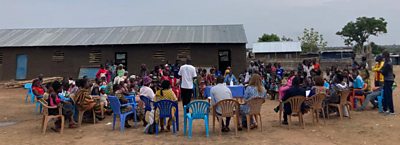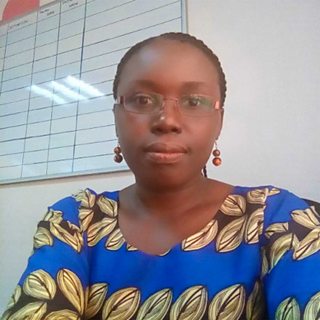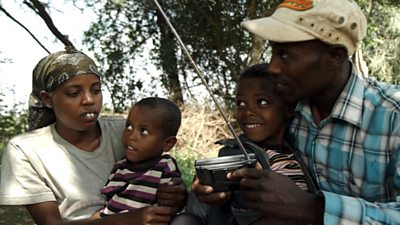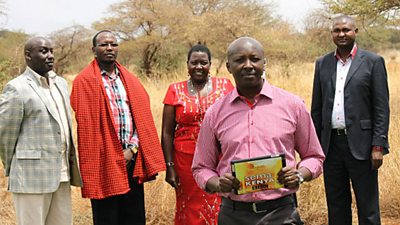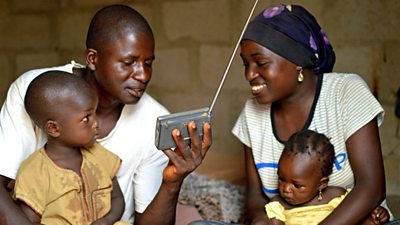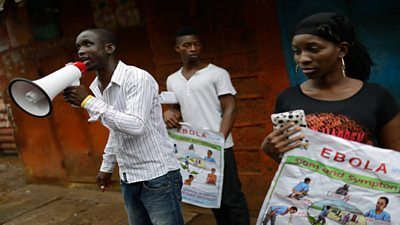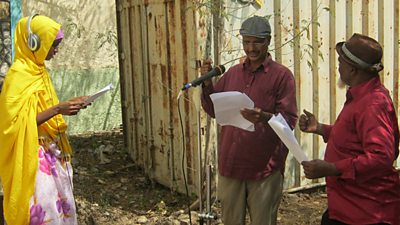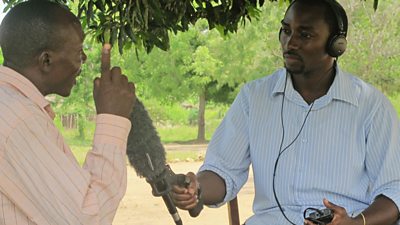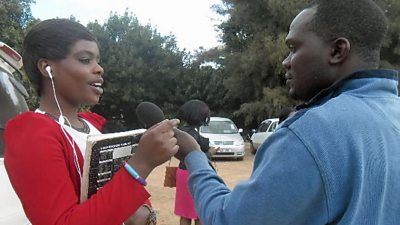Imagine striking up a conversation about sexually transmitted infections (STIs). Now think about doing that in South Sudan.
Across our country, it takes enormous bravery to talk about STIs. The culture here is heavily loaded with taboos and stereotyping on topics related to sexual and reproductive health. Many believe that such an agenda shouldn’t be discussed publicly - if at all. This then often leaves the voices of women and girls unheard on issues that affect their lives, and, in turn, causes significant risk to health.
Yet STIs are a concern here. A World Bank survey conducted in 2008 in Juba and Morobo found that men and women in all age groups had symptoms of an STI. And in 2009, another survey, this time in Kajo Keji county, found 12.7% percent of men and 19.2% of women aged 15-49 surveyed had STI symptoms at that moment.
Many attribute the spread of STIs to the cultural phenomena that prohibit conversations and civic education about sexual health.
1.9 million listeners in three languages
Our factual radio programme called Kelina wonusu an nufusna, which translates as “Let’s Talk About Us”, shares trusted content on sexual and reproductive health. The topics talk about women and men, their relationships, their bodies, and their health so that they can learn and make their own decisions. It addresses harmful norms and misinformation on family planning, sexually transmitted infections and menstrual hygiene; power dynamics among couples, especially about who makes decisions, and gender-based violence.
The programme has over 1.9 million listeners across the country and is translated into three local languages: Local Arabic, Dinka and Azande. The programme has been running for about two years, and airs on 26 of our partner radio stations across South Sudan, as well as on solar-powered wind-up radios that we distribute to communities that otherwise have no media access. The programme provides information as well as a platform for discussion, dialogue and decision-making.
Opening eyes and changing lives
Akon, 22, is a mother of two. She explained to our community mobilisation outreach volunteer how for over a year, she and her husband suffered the harsh reality of living with the symptoms of an STI.
Due to cultural beliefs that whoever gets an infection is not a faithful wife, we were afraid as a couple... that if they found out we were infected, the rumours could spread and everyone in the community would talk about us. This fear stopped us from consulting even close friends."
But after listening to an episode of "Let’s Talk About Us" in a listener group in their community, Akon described the programme as an eye-opener. It made her realise they needed medical help for what was affecting them.
Akon said she talked to her husband about the case of Teresa, a contributor to the programme, who had told of how she had once contracted syphilis but got well after visiting the health facility. Her husband agreed to go to the hospital, but asked that she go first.
Days after her medical visit, her husband agreed to go back to the medical facility with her, where they were both given medication. Speaking happily, and now healthy, Akon credits the information she obtained from the radio programme for them seeking treatment.
If we had known earlier, we wouldn't have stayed in pain. We now feel so empowered, and we have taken a step of talking to other people in our communities, referring to ourselves as an example and role model. We are also encouraging couples to discuss STIs freely in their families and visit health facilities for checkups, just in case.”
Dispelling common misconceptions
In South Sudan, men still make most of the decisions. Our programme engages men as well as women, so that they understand and contribute to a more supportive environment and attitudes towards access to sexual and reproductive health services for women and girls. ‘Let’s Talk About Us’ also aims to dispel common misconceptions about sexual and reproductive health; features health experts and tells people’s stories – both positive and negative.
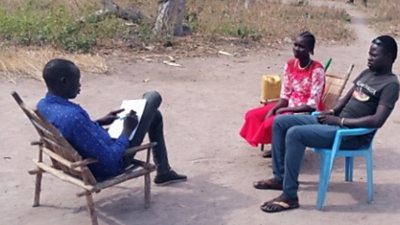
Our listeners say that our programme has changed their views on seeking medical help, and their attitudes around sexual and reproductive health.
Many men play the blame game on their partners, claiming women are the ones bringing infections to them, which is wrong, it's not a shame to go with your wife to the hospital.”
Due to the programme, my wife and I went to Juba Teaching Hospital after we experienced some signs and symptoms of syphilis. We were given medication and now we are fine. It helped my wife get pregnant and give birth to a healthy baby. I would love to credit my wife because she encouraged us to go to hospital, and I didn’t oppose it."
Call-in questions and expert answers
Production manager Lameck Wawa explains how the programme offers a safe space for audiences to find solutions. When they call in asking questions, the caller is connected to an expert such as a doctor or a family planning professional. Questions typically will be where STI treatment centres are in the caller’s area, or what to do if medication hasn’t improved their condition. He says that the team receives such an overwhelming number of questions that they have begun recording special episodes, to allow experts to answer all questions and provide more solutions to people who need them.
Since 2020, the programme has reached over 1.9 million listeners with radio broadcasts of “Let’s Talk About Us” – roughly 17% of the total population - and engaged over 2,765 families in listening groups, that’s about 23,903 individuals. Both through radio and in our outreach work, we are managing to reach a mixed gender listenership, of 56% female and 44% male.
We know and are proud that “Let’s Talk About Us” is helping women of childbearing age, men, and both married and unmarried couples to make informed decisions concerning their sexual and reproductive health and rights.
--
"Let's Talk About Us" is produced with funding from Global Affairs Canada as part of the Amplifying Women's Voices project.
